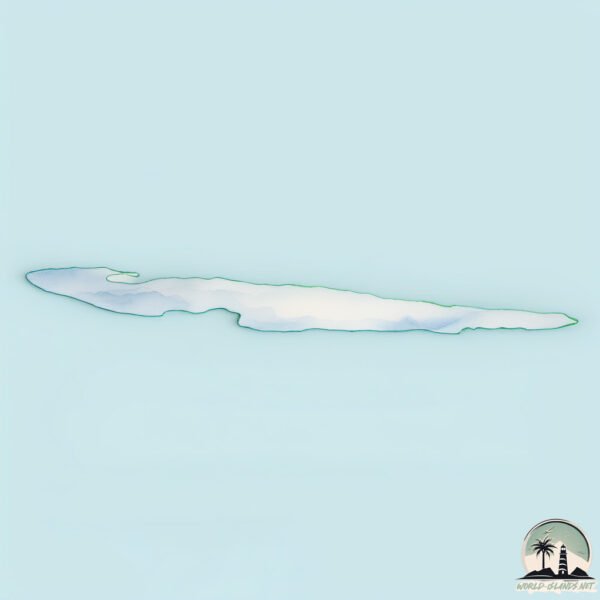Wiese

Welcome to Wiese, a Polar island in the Kara Sea, part of the majestic Arctic Ocean. This guide offers a comprehensive overview of what makes Wiese unique – from its geography and climate to its population, infrastructure, and beyond. Dive into the details:
- Geography and Size: Explore the island’s size and location.
- Climate and Weather: Weather patterns and temperature.
- Topography and Nature: Uncover the natural wonders of the island.
- Infrastructure and Travelling: Insights on reaching, staying, and making the most of your visit.
- News and Headlines: Latest News.
Geography and size of Wiese
Size: 296 km²
Coastline: 169.4 km
Ocean: Arctic Ocean
Sea: Kara Sea
Continent: Asia
Wiese is a Large Island spanning 296 km² with a coastline of 169 km.
Archipel: –
Tectonic Plate: Timor – A small tectonic plate in the Timor region, primarily under the Timor Sea. It’s involved in the collision between the Australian and Eurasian plates, contributing to the region’s seismic activity and the uplift of the island of Timor.
The geographic heart of the island is pinpointed at these coordinates:
Latitude: 79.54774349 / Longitude: 76.81617884
Climate and weather of Wiese
Climate Zone: Polar
Climate Details: Tundra
Temperature: Cold
Climate Characteristics: The tundra climate features long, extremely cold winters and short, cool summers. Vegetation is limited to mosses, lichens, and small shrubs due to the low temperatures and short growing seasons. Biodiversity is low, but some specialized species thrive.
Topography and nature of Wiese
Timezone: UTC+06:00
Timezone places: Asia/Almaty
Max. Elevation: 18 m
Mean Elevation: 6 m
Vegetation: Snow and Ice Covered
Tree Coverage: 91%
The mean elevation is 6 m. The highest elevation on the island reaches approximately 18 meters above sea level. The island is characterized by Plains: Flat, low-lying lands characterized by a maximum elevation of up to 200 meters. On islands, plains are typically coastal lowlands or central flat areas.
Dominating Vegetation: Snow and Ice Covered
These areas are permanently or seasonally covered in snow and ice, with little to no vegetation, such as polar regions and high mountains. Wiese has a tree cover of 91 %.
Vegetation: 3 vegetation zones – Moderately Diverse Island
These islands start to show a broader range of ecological niches. With three vegetation zones, they may offer a mix of ecosystems like coastal areas, inland woods, and perhaps a distinct wetland or dry area. This diversity supports a wider range of flora and fauna, making these islands more ecologically complex than those with minimal diversity.
Infrastructure and Travelling to Wiese
Does the island have a public airport? no.
There is no public and scheduled airport on Wiese. The nearest airport is Utrenniy Airport, located 975 km away.
Does the island have a major port? no.
There are no major ports on Wiese. The closest major port is PORT DIKSON, approximately 739 km away.
The mean population of Wiese is 0 per km². Wiese is Uninhabited. The island belongs to Russia.
The name of the island resonates across different cultures and languages. Here is how it is known around the world: Arabic: جزيرة فايز; German: Wiese-Insel; Spanish: Isla Vize; French: île Vizé; Portuguese: Ilha Vize; Russian: Остров Визе; Chinese: 維澤島
Continuing your journey, Ushakov is the next notable island, situated merely km away.
3 Russian Islands Where No Human Is Welcome



Russia is classified as Emerging region: BRIC: Brazil, Russia, India, and China – Economies noted for their rapid growth and increasing influence on global affairs. The level of income is Upper middle income.
News – Latest Updates and Headlines from Wiese
Stay informed with the most recent news and important headlines from Wiese. Here’s a roundup of the latest developments.
Please note: The data used here has been primarily extracted from satellite readings. Deviations from exact values may occur, particularly regarding the height of elevations and population density. Land area and coastline measurements refer to average values at mean high tide.
